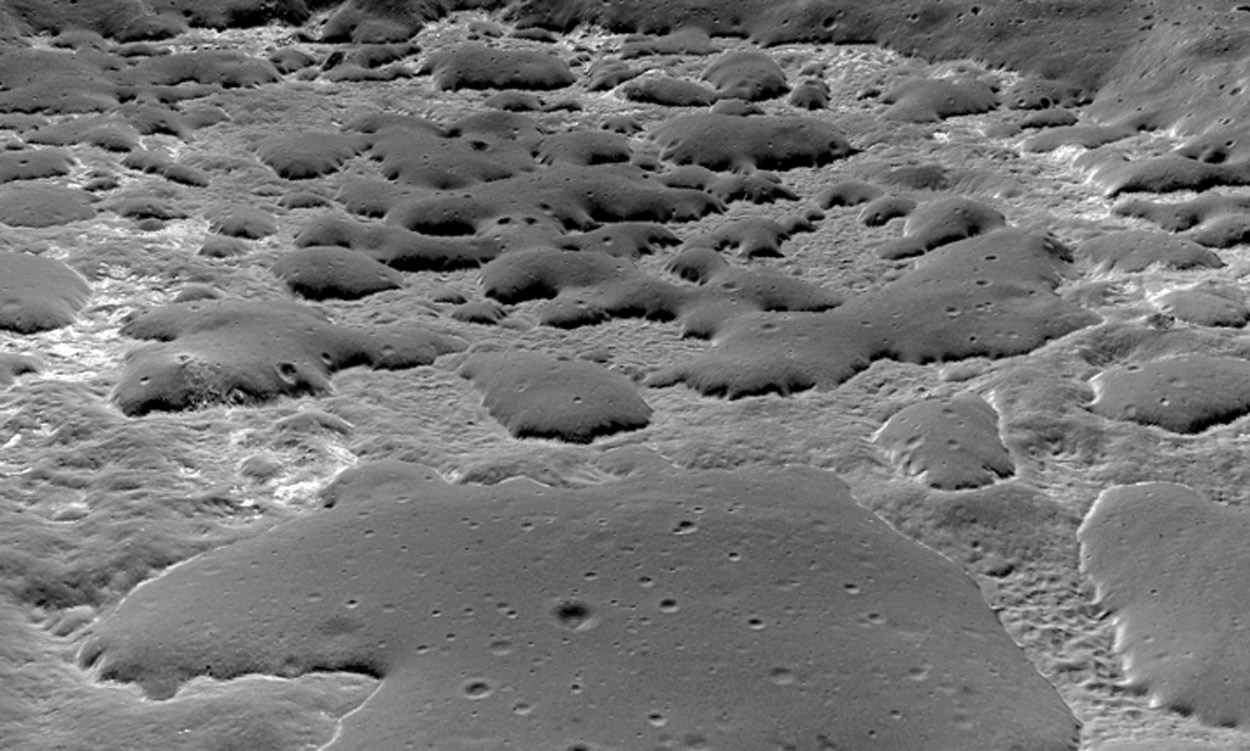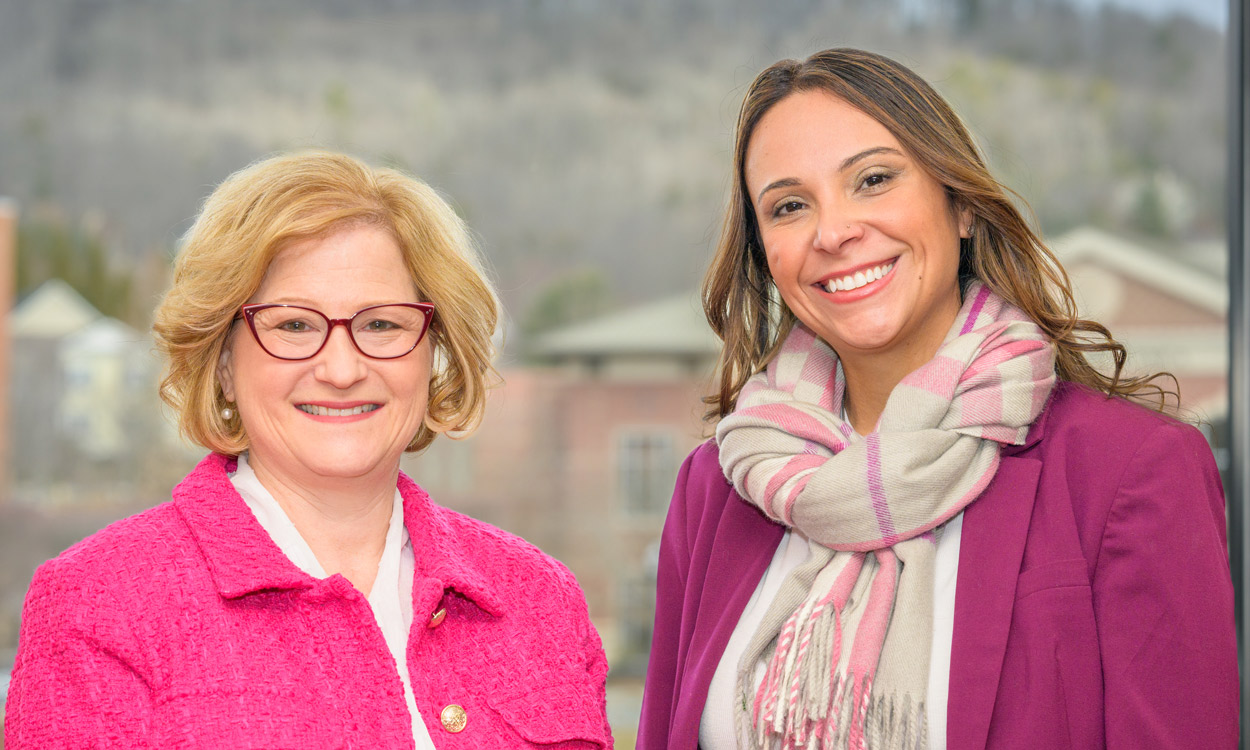Associate professor, students produce grant-funded documentary about Asheville-based Umoja Health, Wellness and Justice Collective
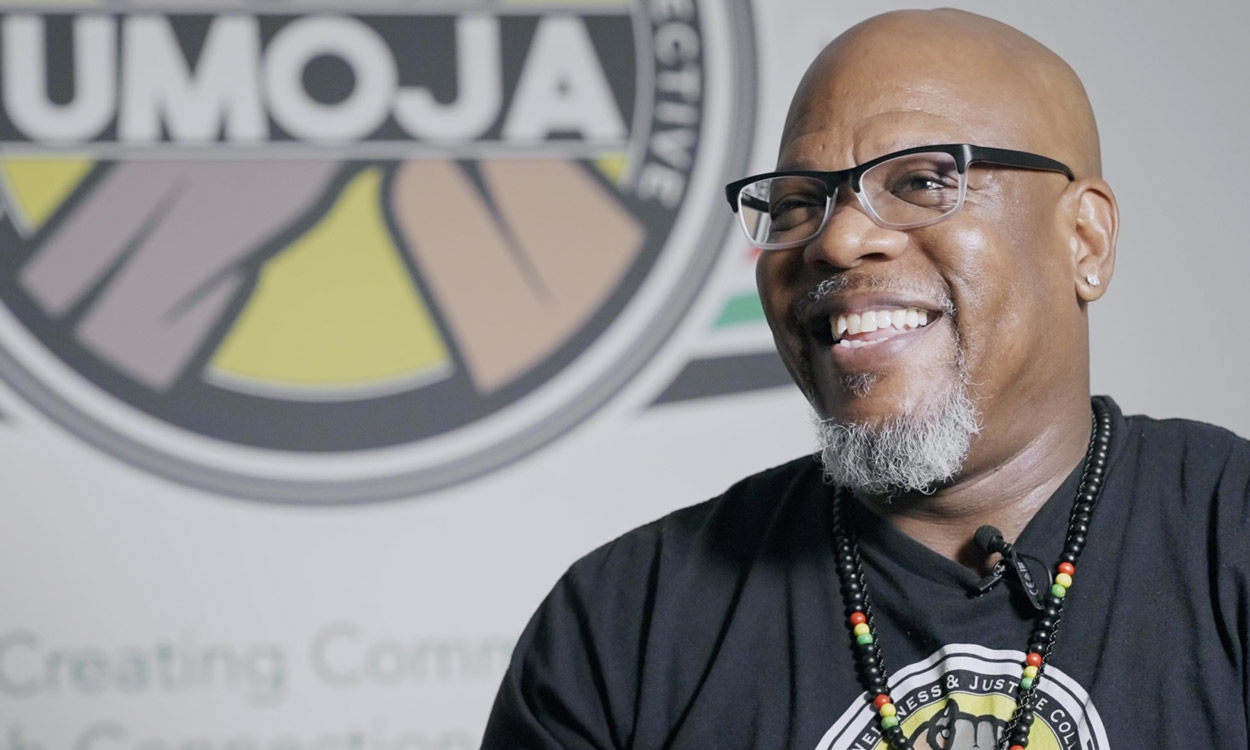
Michael Hayes is the founder of Umoja Health, Wellness and Justice Collective in Asheville.
By Julia Duvall
Four years ago, Josh Overbay, associate professor in Western Carolina University’s School of Stage and Screen, was attending a Resources for Resilience workshop on trauma healing where he met workshop co-facilitator Michael Hayes.
Hayes is the founder of Umoja Health, Wellness and Justice Collective in Asheville.
“I quickly discovered the incredible work Michael does with the Black community in Buncombe County through Umoja,” Overbay said. “He works primarily with youth from Buncombe County Schools through summer camps and after-school programming. Umoja also offers adult education classes during the week, support groups and job training.”
Umoja is a Black-owned, grassroots nonprofit disrupting generational trauma and incarceration by teaching resiliency, building community, peer-based recovery and healing through the arts.
Hayes founded the organization after his release from jail to give the youth of Buncombe County a place to share their voices and experiences after taking an Adverse Childhood Experiences survey and scoring a 10 out of 10.
The mission of Umoja is to create community through connection and culture.
Umoja’s certified peer support specialists use information, story and embodied practices to build compassion, knowledge and tools to seek and sustain healing.
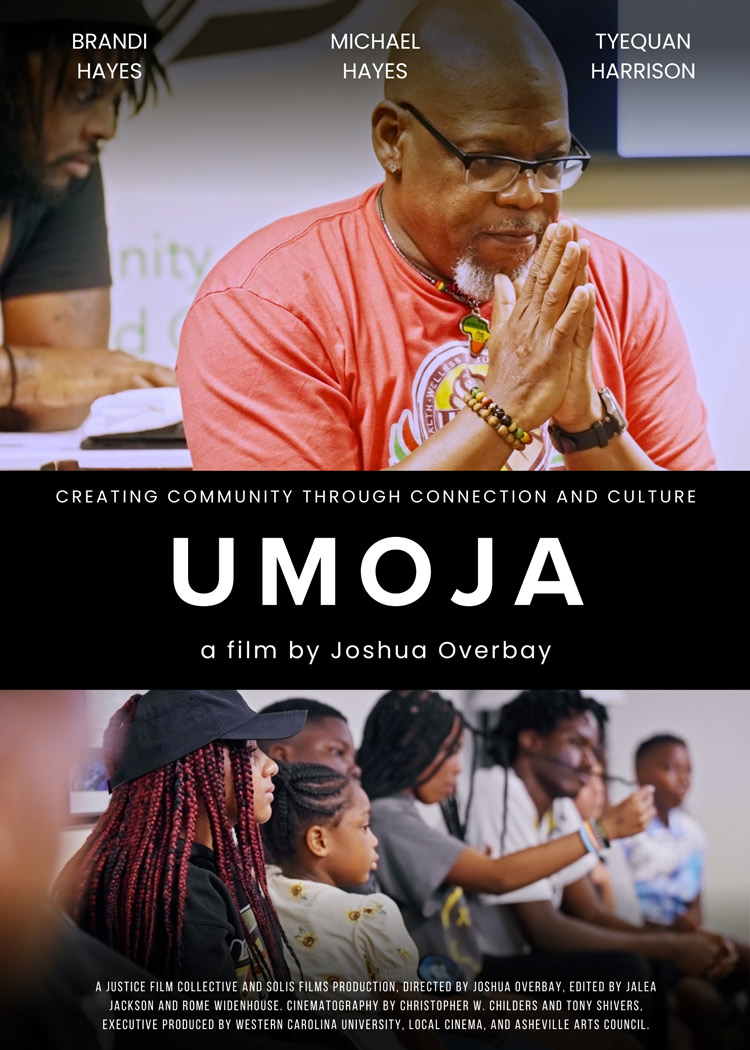
In 2021, when Overbay talked to Hayes about making a documentary about Umoja, WCU’s David Orr Belcher College of Fine and Performing Arts had recently opened up scholarship grants for anti-racist catalysts.
“We applied for one and got a lot of our funding from that, which meant we could hire students on the project,” Overbay said. “This allowed our students to get professional experience shooting a documentary.”
Overbay, along with students in the School of Stage and Screen and his own production company, Justice Film Collective that he founded with his wife, Andie Morgenlander, worked on the short documentary from concept to production in the summer of 2022, to editing for approximately one year until the summer of 2023.
The documentary debuted at the end of this past summer.
“The documentation of this work has greatly impacted the lives of our students, parents, staff and all of those that are associated with Umoja,” Hayes said. “The fact that it took two years to develop gave us an opportunity to see the growth in our students and the buy-in from the parents. We were given this beautiful moment in time where we witnessed healing, growth, acceptance and understanding as it happened. Now the students are even more excited to share their story with the world and continue on their healing journey. The staff at Umoja now have a better understanding of how impactful our work is.”
One of the larger programs offered by Umoja is the “H.O.P.E. 4 The Future” summer program that extends into the school year, which is where Overbay got the majority of the documentary footage during the summer of 2022.
HOPE or Healing Our Past, Personal, Privileged Experiences is at the center of Umoja’s mission.
“This program has moved from the brick-and-mortar facility to Buncombe County Schools,” Overbay said. “H.O.P.E 4 The Future provides workshops, outdoor activities, instructional time and space for the students to just converse with one another and their mentors.”
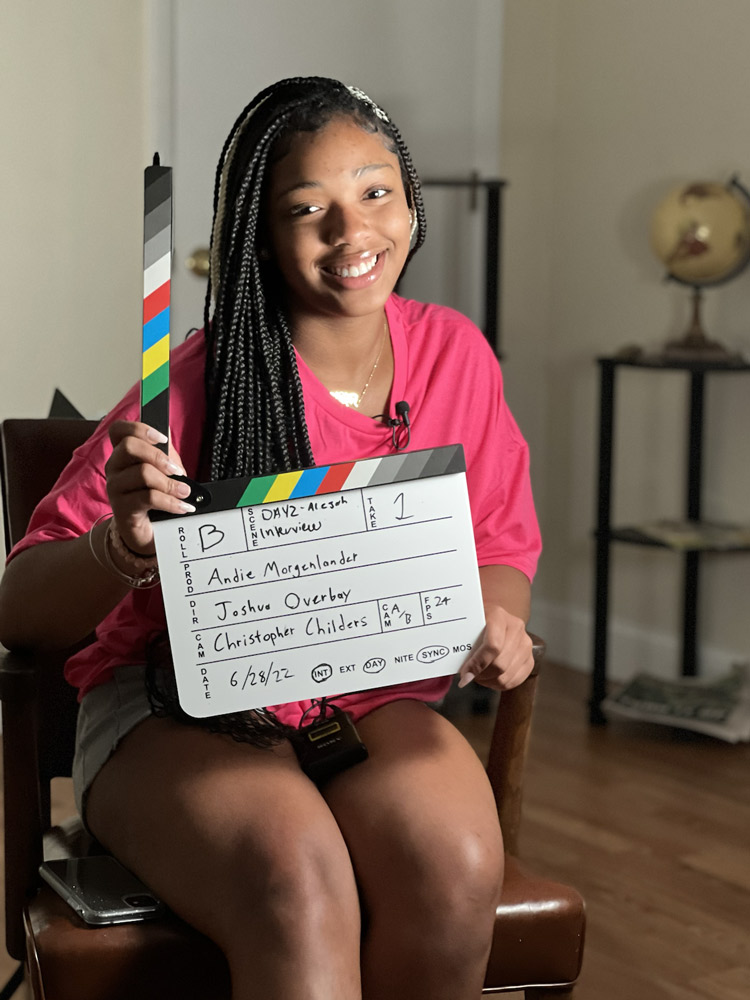
Resiliency, support, compassion and forgiveness are big themes at Umoja.
“I remember out of the gate when we were just starting to shoot some of the interviews, they had a student come up in front of the group and she held herself accountable for the way she had acted the previous week,” Overbay said. “Michael then talked with the group about how sometimes with apologies come shame and that is combatted through building up, where all of the students went around the room and shared something positive about the student that was apologizing. It was incredible to witness.”
In addition to the adult mentors, there are leaders among the student groups, which include middle and high school-aged youth.
“There's a real commitment to undoing the trauma caused by systemic racism,” Overbay said. “They are meeting these kids where they are, directly addressing the trauma these kids have experienced. It was an honor to document their story.”
Jeremiah Godfrey, a senior in the School of Stage and Screen from Etowah, was thrilled to get to work on a project that was not only giving him professional experience but was also very meaningful to be a part of.
“I had a blast working on this project; this was my first opportunity working with Josh Overbay and I was really honored to be invited to be part of the documentary,” Godfrey said. “It was a really open environment and everyone was so great to work with.”
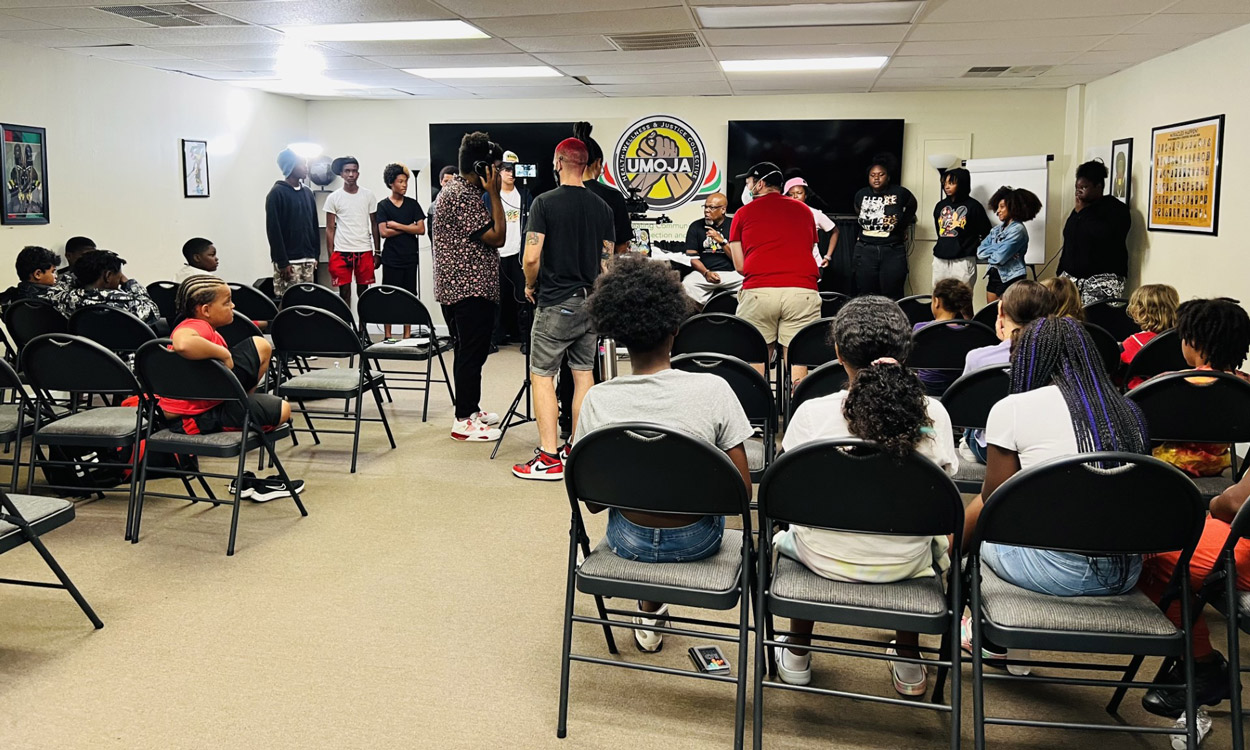
Overbay has started submitting the documentary to film festivals and Hayes uses it at conferences and other public engagements.
“The most rewarding part of working with Josh, Andie and the students at WCU was and is the relationships that develop in a natural and authentic way,” Hayes said. “The WCU team was patient and understanding with our students in creating an atmosphere of trust and respect and vice-versa, which led to truth, honesty and comfortability when it was time to share their stories.”
Umoja’s goal for the next few years is to continue to reach out to families and provide the time and space for healing to take place.
“We hope to be in every school in Buncombe County as well as other cities because we feel that everyone deserves the chance to heal,” Hayes said.
